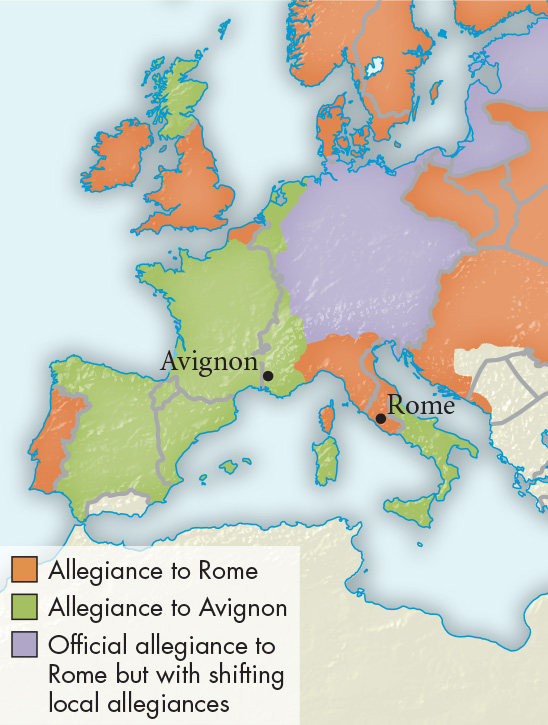A History of World Societies:
Printed Page 419
A History of World Societies Value
Edition: Printed Page 416
Challenges to the Church
In times of crisis or disaster people of all faiths have sought the consolation of religion, but in the fourteenth century the official Christian Church offered little solace. While local clergy eased the suffering of many, a dispute over who was the legitimate pope weakened the church as an institution. In 1309 pressure by the French monarchy led the pope to move his permanent residence to Avignon in southern France, the location of the papal summer palace. This marked the start of seven successive papacies in Avignon. Not surprising, all these popes were French — a matter of controversy among church followers outside France. Also, the popes largely concentrated on bureaucratic and financial matters to the exclusion of spiritual objectives.

In 1376 one of the French popes returned to Rome, and when he died there several years later Roman citizens demanded an Italian pope who would remain in Rome. The cardinals elected Urban VI, but his tactless, arrogant, and bullheaded manner caused them to regret their decision. The cardinals slipped away from Rome and declared Urban’s election invalid because it had come about under threats from the Roman mob. They elected a French cardinal who took the name Clement VII (pontificate 1378–
The powers of Europe aligned themselves with Urban or Clement along strictly political lines. France recognized the Frenchman, Clement; England, France’s historic enemy, recognized Urban. The rest of Europe lined up behind one or the other. In all European countries the common people — hard-
A first attempt to heal the schism led to the installation of a third pope and a threefold split, but finally a church council meeting at Constance (1414–